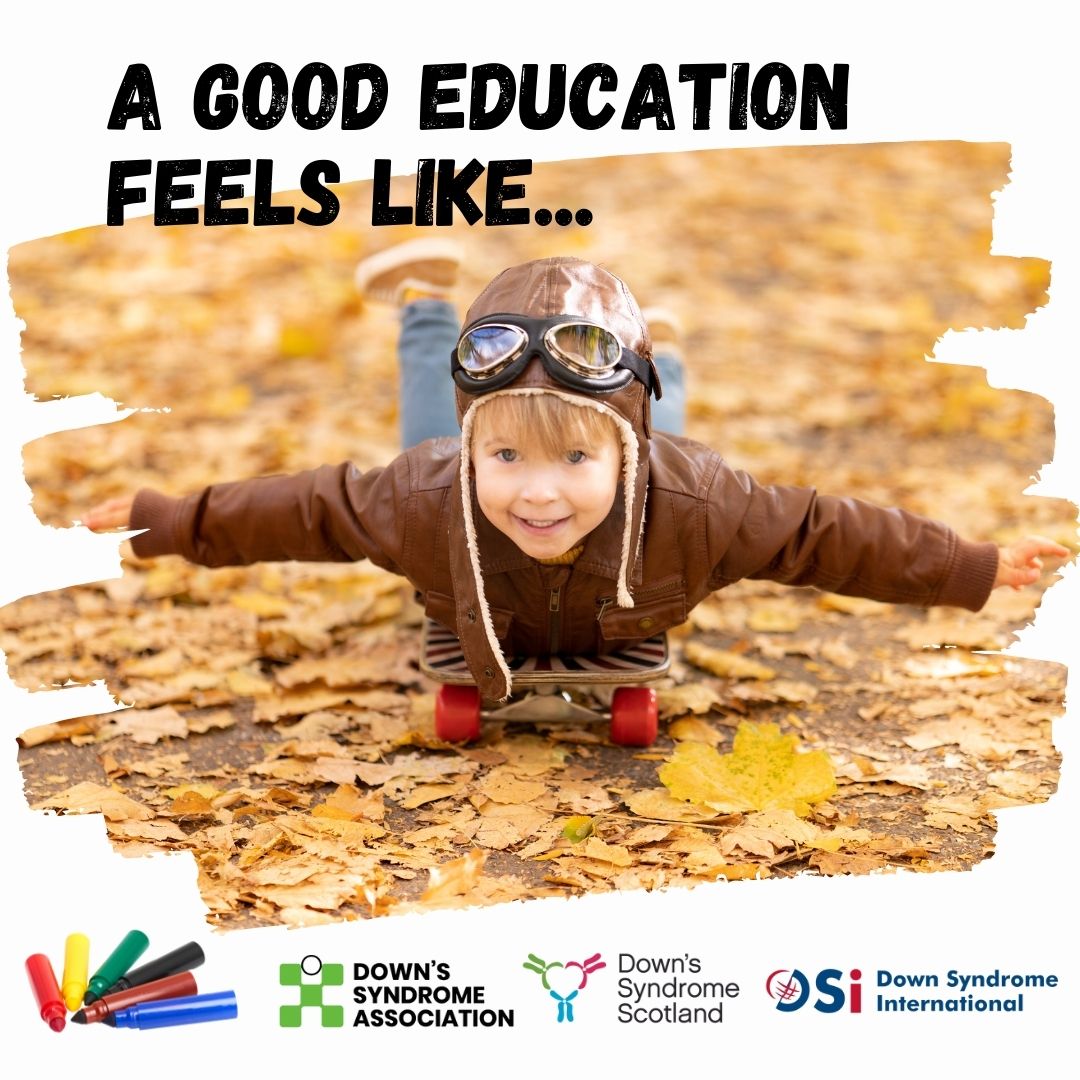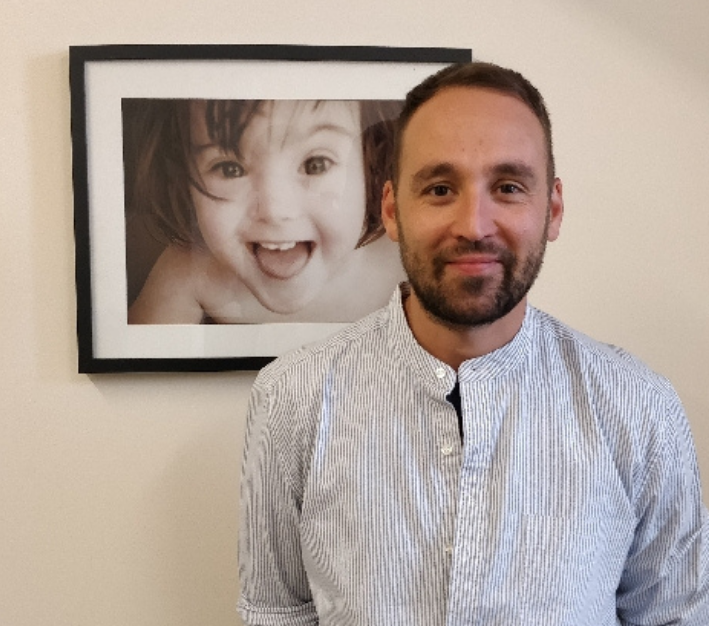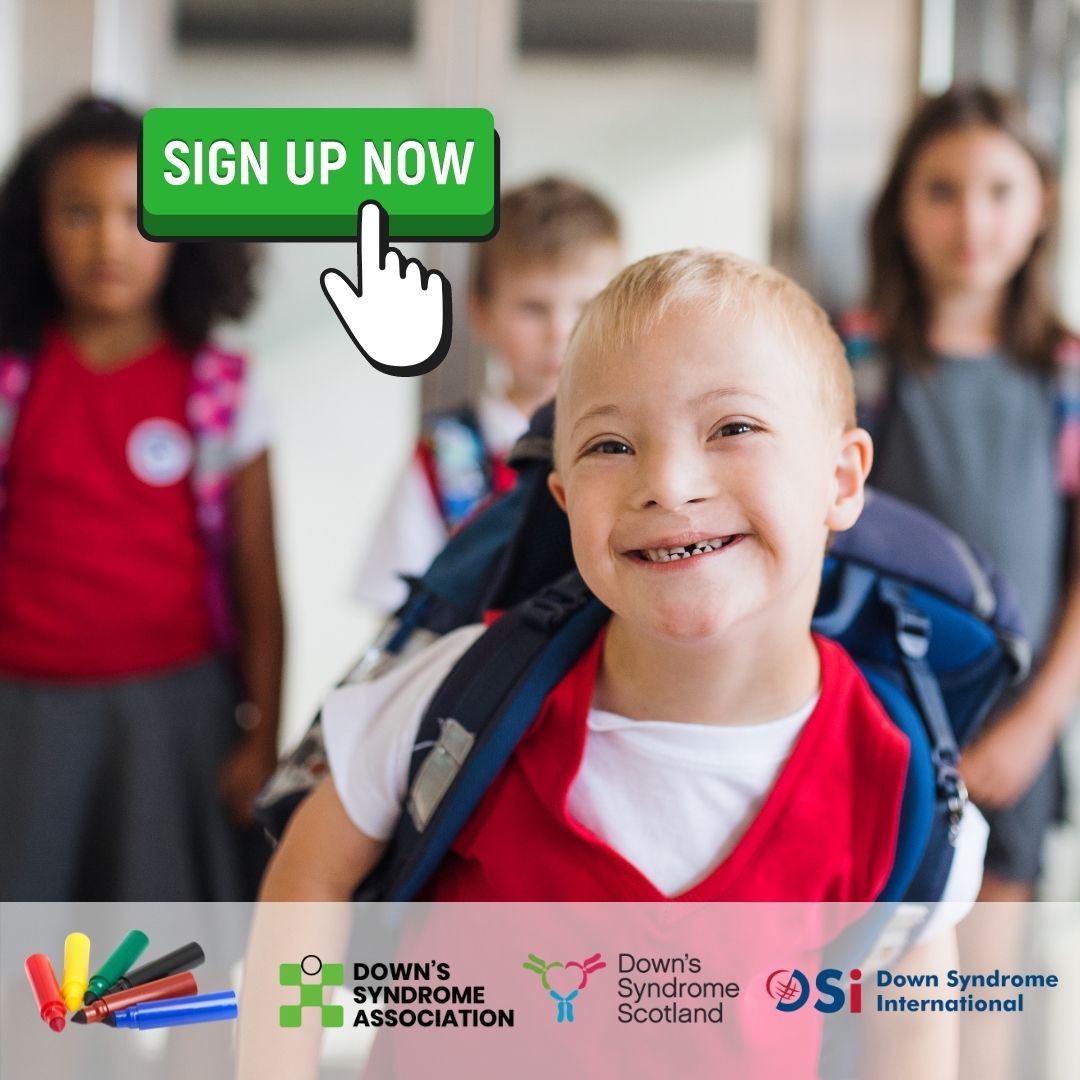Inclusive Education for All #1
20 January 2022
by Chris Barnes, Inclusive Education Officer, Down Syndrome International
What memories do you have of school? Perhaps best friends, good times, residentials and trips; maybe something makes you smile, or blush in embarrassment! I expect you can remember a favourite teacher or two, and the one that you weren’t so keen on.
What does a good education look like? What does it feel like?
People around the world have spent decades trying to describe what a good education is, e.g., ‘Equitable’, ‘For All’, ‘Inclusive’, ‘Quality’, ‘Equal’, ‘Effective’, ‘Individualized’, ‘Facilitating’, ‘Free’. The list goes on.

Some countries are regarded as world leaders in education, whereas others are in their infancy. States or provinces differ greatly across single nations; towns and cities have schools renowned for ‘high-quality’ education, whereas nearby, others aren’t. In a school setting, there are ‘outstanding’ practitioners working alongside developing or ‘under-performing’ teachers. One child may be really enjoying, or benefiting from, their time in a class, whereas another child – in the same room – may not be…
A good education can do many things: Provide joy, happiness, and fun; promote a love of learning and nurture young, enquiring minds; support and care for the mental health of its participants; impart important and useful knowledge and skills; provide safety, structure and routine; encourage physical health and wellbeing; cultivate aspirations for the future; offer a creative outlet and the chance to think independently; afford learners the chance to become good local and global citizens; develop emotional maturity and understanding of relationships with peers and authority.
I’m sure you can think of many other things a good education can or should do.
Education is a subject matter that almost everyone has experience, opinion, and vested interest. I have spent more than a decade listening, asking, teaching, reading, and doing my best to understand how the idea of a good education translates into practice in the UK. Countless themes are repeatedly in the mix, but one never leaves it…a good education considers the individual.

No matter how good the teacher, how small the class, how focussed on quality education the school may be, none of this matters if we ignore the individual needs of our students. A good education, and education system, considers the individual needs of its most valued members – the children it aims to serve.
This advocacy campaign aims to define, describe, and provoke discussion on the subject of ‘Inclusive Education’. Many people will rightly say, ‘The definition of an Inclusive Education is available for all in General Comment 4, 2016 (Right to an Inclusive Education) on Article 24 of the United Nations Convention on the Rights of Persons with Disabilities, 2006.’ This is true! Unfortunately, yet understandably, many educators, school administrators, and policy makers don’t appear to have read it, yet.
This Inclusive Education campaign hopes to distil key messages from this guidance, to help encourage and support learners with learning disabilities, their families and carers, and all stakeholders within the education system to understand, and move closer to, the concept of an ‘Inclusive Education’.


